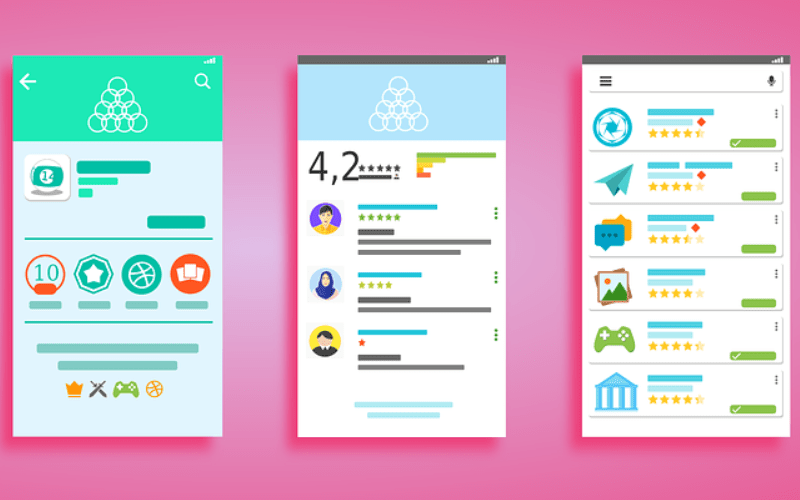
Life is a race. More so when it comes to business and making money. The more time passes, the stronger the competitors are, the more it takes to get ahead of them. Converting your site into a mobile app is one of those “modern demands”.
Unless your business is very specialized, or you have a spark of genius combined with an adequate marketing team, you must succumb to these demands. And the reason is simple, the world is a rapidly changing place.
Four years ago was crucial in web development. It was the first year when global internet traffic was dominated by mobile devices. Therefore it calls for businesses to increase their presence on the mobile specter of the internet. While having a mobile-friendly site is a sign of respectable entrepreneurship. All the marketers are ripping their throats while shouting how much more “engaging” and “profitable in the long term” mobile apps are in comparison. That’s being said Ms. Statistics may have a word with them.
Luckily, this task is not as hard as it may look. That is if you have enough funds to achieve it.
Reasons for Conversion

The main difference between site and mobile app is their approach to working with clients. Websites beat apps in several fields.
Website Advantages:
- Organic trafficking: if your marketing team is good enough, most probably, people will find you by “indirect googling”. While it is not an easy task to set your SEO and promote your products or services right, nobody will search for you in the Play Market. The dominant part of organic traffic is still made by desktop users.
- First-time visit: When people first know the name of your company and are interested in it, the first thing to do is to visit your site. The probability of they would first install your app to see what is going on is close to zero.
- Making an impression: Closely tied to the previous two. As was mentioned, the people will first see your site, and depending on how well it is made, they will make their judgments about your company as a whole.
- Desktop users: n matter how you look at it, a considerable part of web traffic is still desktop-based, the users that prefer using their PC have no use for apps.
Of course, there is a list of reasons for making your site into an app.
App Advantages:
- “Surviving” in the modern world: A decade or two ago, simple websites were not a necessity, but luxury. Now if you don’t have one, you are out of business. The same goes for mobile apps, over time their influence increases, and to stay relevant you just have to adopt them.
- Better User Experience: your website can be perfectly adaptive, but it simply can’t have the same functionality as a well-built app. They are typically easier to operate, faster in response, and can even have limited functionality, while the user is offline.
- More loyal and engaged customers: While apps are not as good at introducing users to your company, they are better when it comes to retaining the client base you already have. As an app is already a part of someone’s device. The trick part is actually convincing the public to install it.
- 157% higher conversion rate: Conversion rate refers to how much people buy in relation to how much people visit the selling page. According to statistics, users find it easier and more tempting to buy via apps, not to mention that apps can have more variety in the income source compared to websites.
- Push notifications: Yes, you can design it so your app will show your advertising via mobile notifications time after time. But I must warn you, it is a dangerous path. It’s more likely to annoy your users with them, so you lose your client base than to gain an additional conversion. It is not trendy and a dangerous tool.
- App Store and Playmarket presence: you basically gain additional platforms to promote you in. But it is hard to actually appear at the user’s search as the competition is fierce.
Options for Production

When building an app from a website there are two approaches to do so. You either build a native app, or you opt for a hybrid one. Native app refers to an app built from scratch as a standalone entity. Hybrid apps work in conjunction with your main site. Each of them has its own set of advantages and drawbacks.
Native Apps:
- Specialty: Native apps are much more versatile. Their customization possibilities are limited by your imagination and the possibilities of the devices they are installed in only.
2.Necessity: Some types of apps just can’t be made via the Hybrid method. There are a number of features, like face recognition, GPS, and such, that can only be accessed via Natively built apps.
Hybrid Apps:
- Cost: Usually, building a Hybrid app is 2 to 10 times cheaper than a Native one.
- Time consumed: Native apps tame months to build, Hybrid apps vary in that regard. Depending on the method it can take from several days to even several hours. But again, you need to consider the effect of such simplification on the product quality.
- Site synchronization: Most of the native apps are managed separately from the main site. Therefore it takes more work to keep an eye on both of them. Hybrid apps offer an easier solution.
- New opportunities: The methodology of Hybrid apps building is younger and develops faster. In the not-so-distant future, the functionality of hybrid apps would be no different from NAtive counterparts.
- Toolkits: the variety of instruments to build a Hybrid app is growing over time, offering different functionality of instruments.
In the end for most businesses, a hybrid app is a way to go, while native apps are a luxury. Unless you absolutely must, it is easier and faster to build.
Lastly, we need to discover in which way to perform a website conversion:
The Ways Are:
- Code it yourself. It takes time. Actually A LOT of time, and it requires you to have actual skills. But it is the cheapest option on the market. In case you pretend that your time costs nothing.
- Hire a freelancer. Depending on the person you hire it can be one of the cheaper options. However, it takes a lot of time and you need to make sure you hire an adequate person with proper skills and a good work ethic.
- Hire an app development agency. By far the most expensive option. But, at the same time the most professional one. That people earn their bread, working on the tasks like this. They can be trusted with both the development and design of the apps. The main advice, make a little research before hiring any company.
- WordPress plugins. WordPress is by far the most versatile CMS tool in the world. Plugins are what make it come true. Compared to other options it is relatively cheap and by far the fastest. As for the functionality, well it depends on the quality of the plugin. Compared to handiwork, apps produced with this mass production method can be lackluster.
- Builder Programs. There are a lot of tools on the market to dumb-it-down the process of creation for an average user. And that kind of program can build an app, even without any knowledge in coding. But keep in mind that having a tool is not enough, you must master a tool. Though it is really easier than mastering coding skills.
Okay, Keep It Short!
It goes like this: If you have a business that isn’t highly specialized or just local, you might, and , in a few years, must have a desire to build an app for it. There are two main methodologies, Native, and Hybrid. Native builds app from the scratch, Hybrid lives in symbiosis with the already existing site. Unless you want a highly specialized app, you always stick to the Hybrid apps.
And lastly, you may opt to code your app yourself, hire a freelancer, hire an agency, use a WordPress plugin for that, or build it after buying an appropriate tool.
That’s all, good luck!
